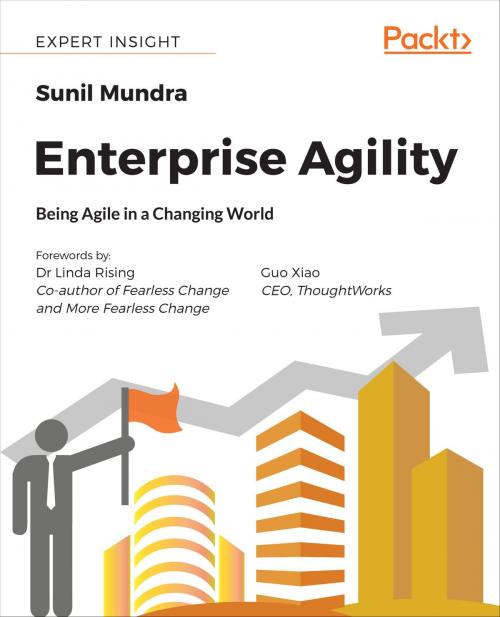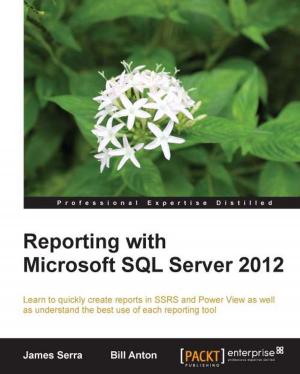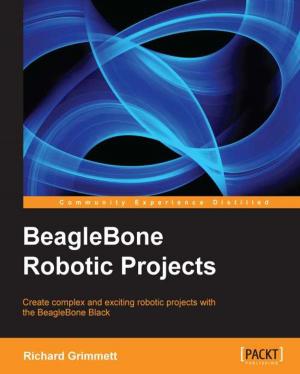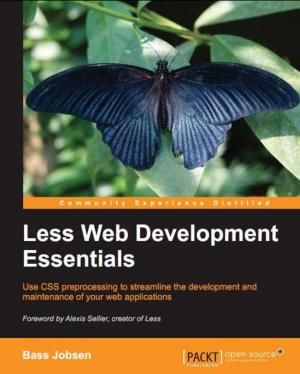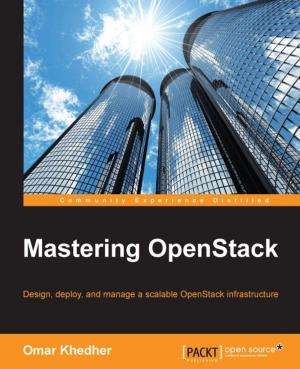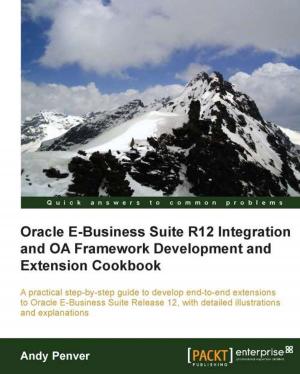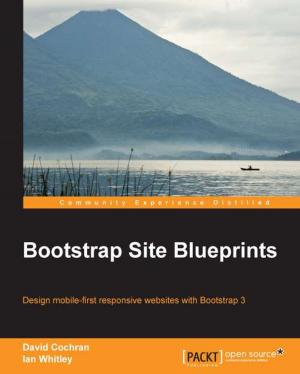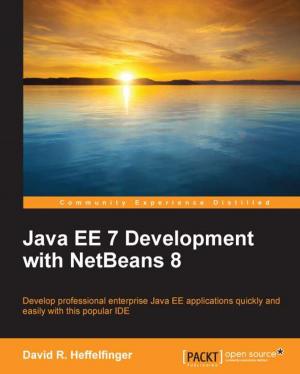Enterprise Agility
Being Agile in a Changing World
Nonfiction, Computers, Programming, Systems Analysis, Application Software, Business Software, General Computing| Author: | Sunil Mundra | ISBN: | 9781788991223 |
| Publisher: | Packt Publishing | Publication: | June 29, 2018 |
| Imprint: | Packt Publishing | Language: | English |
| Author: | Sunil Mundra |
| ISBN: | 9781788991223 |
| Publisher: | Packt Publishing |
| Publication: | June 29, 2018 |
| Imprint: | Packt Publishing |
| Language: | English |
Enterprise Agility is practical framework for enhancing Agility and equipping your company with the tools to survive.
Key Features
- Prepare your company to navigate the rapidly-moving business world
- Enhance Agility in every component of your organization
- Build a framework that meets the unique requirements of your enterprise
Book Description
The biggest challenge enterprises face today is dealing with fast-paced change in all spheres of business. Enterprise Agility shows how an enterprise can address this challenge head on and thrive in the dynamic environment. Avoiding the mechanistic construction of existing enterprises that focus on predictability and certainty, Enterprise Agility delivers practical advice for responding and adapting to the scale and accelerating pace of disruptive change in the business environment.
Agility is a fundamental shift in thinking about how enterprises work to effectively deal with disruptive changes in the business environment. The core belief underlying agility is that enterprises are open and living systems. These living systems, also known as complex adaptive systems (CAS), are ideally suited to deal with change very effectively.
Agility is to enterprises what health is to humans. There are some foundational principles that can be broadly applied, but the definition of healthy is very specific to each individual. Enterprise Agility takes a similar approach with regard to agility: it suggests foundational practices to improve the overall health of the body—culture, mindset, and leadership—and the health of its various organs: people, process, governance, structure, technology, and customers. The book also suggests a practical framework to create a plan to enhance agility.
What you will learn
- Drive agility-oriented change across the enterprise
- Understand why agility matters (more than ever) to modern enterprises
- Adopt and influence an Agile mindset in your teams and in your organization
- Understand the concept of a CAS and how to model enterprise and leadership behaviors on CAS characteristics to enhance enterprise agility
- Understand and convey the differences between Agile and true enterprise agility
- Create an enterprise-specific action plan to enhance agility
- Become a champion for enterprise agility
- Recognize the advantages and challenges of distributed teams, and how Agile ways of working can remedy the rough spots
- Enable and motivate your IT partners to adopt Agile ways of working
Who this book is for
Enterprise Agility is a tool for anyone with the motivation to influence outcomes in an enterprise, who aspires to improve Agility. Readers from the following backgrounds will benefit: chief executive officer, chief information officer, people/human resource director, information technology director, head of change program, head of transformation, and Agile coach/consultant.
Enterprise Agility is practical framework for enhancing Agility and equipping your company with the tools to survive.
Key Features
- Prepare your company to navigate the rapidly-moving business world
- Enhance Agility in every component of your organization
- Build a framework that meets the unique requirements of your enterprise
Book Description
The biggest challenge enterprises face today is dealing with fast-paced change in all spheres of business. Enterprise Agility shows how an enterprise can address this challenge head on and thrive in the dynamic environment. Avoiding the mechanistic construction of existing enterprises that focus on predictability and certainty, Enterprise Agility delivers practical advice for responding and adapting to the scale and accelerating pace of disruptive change in the business environment.
Agility is a fundamental shift in thinking about how enterprises work to effectively deal with disruptive changes in the business environment. The core belief underlying agility is that enterprises are open and living systems. These living systems, also known as complex adaptive systems (CAS), are ideally suited to deal with change very effectively.
Agility is to enterprises what health is to humans. There are some foundational principles that can be broadly applied, but the definition of healthy is very specific to each individual. Enterprise Agility takes a similar approach with regard to agility: it suggests foundational practices to improve the overall health of the body—culture, mindset, and leadership—and the health of its various organs: people, process, governance, structure, technology, and customers. The book also suggests a practical framework to create a plan to enhance agility.
What you will learn
- Drive agility-oriented change across the enterprise
- Understand why agility matters (more than ever) to modern enterprises
- Adopt and influence an Agile mindset in your teams and in your organization
- Understand the concept of a CAS and how to model enterprise and leadership behaviors on CAS characteristics to enhance enterprise agility
- Understand and convey the differences between Agile and true enterprise agility
- Create an enterprise-specific action plan to enhance agility
- Become a champion for enterprise agility
- Recognize the advantages and challenges of distributed teams, and how Agile ways of working can remedy the rough spots
- Enable and motivate your IT partners to adopt Agile ways of working
Who this book is for
Enterprise Agility is a tool for anyone with the motivation to influence outcomes in an enterprise, who aspires to improve Agility. Readers from the following backgrounds will benefit: chief executive officer, chief information officer, people/human resource director, information technology director, head of change program, head of transformation, and Agile coach/consultant.
